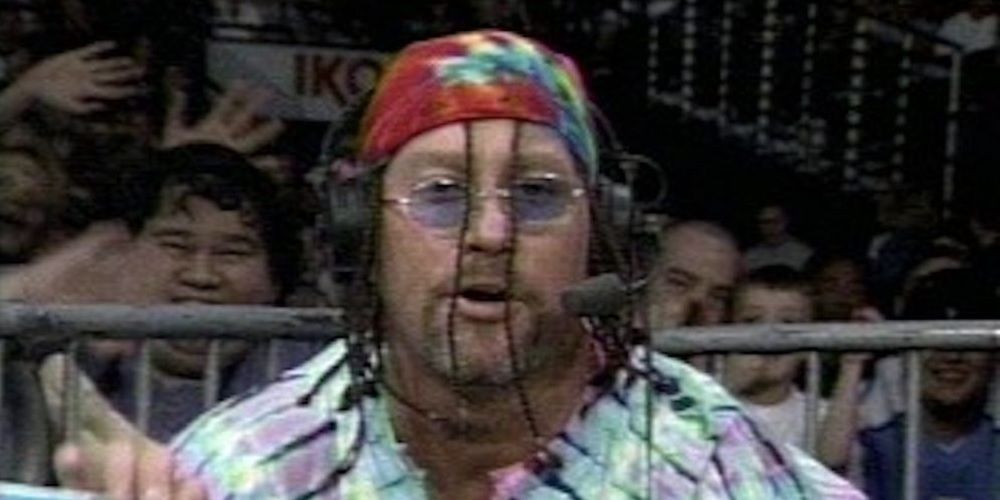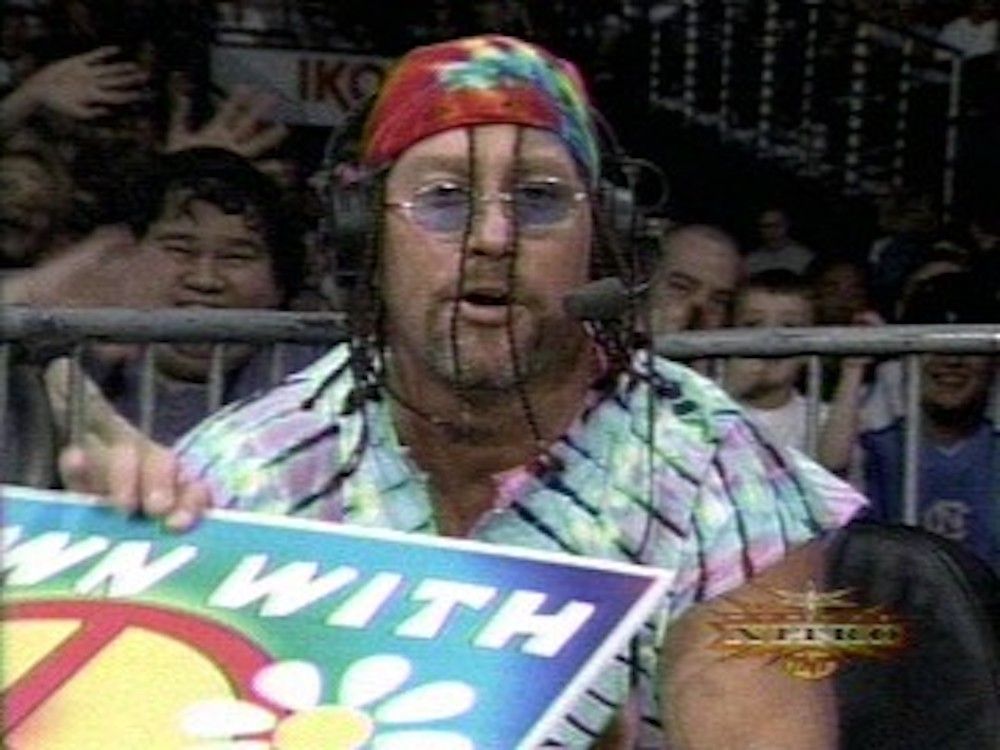WCW Buzzkill: Brad Armstrong's Controversial Gimmick - What Went Wrong?
Could a wrestling gimmick truly be a career killer? In the turbulent world of World Championship Wrestling (WCW), the answer, sadly, appears to be a resounding yes, particularly when the gimmick in question was "Buzzkill."
The late 1990s and early 2000s were a period of creative bankruptcy for WCW, a time when the company, once a formidable competitor to the World Wrestling Federation (WWF, later WWE), was rapidly spiraling towards its eventual demise. Among the many missteps of this era was the creation of "Buzzkill," a character that served as a clear indication of WCW's desperation and its willingness to sacrifice talent on the altar of poorly conceived ideas. The genesis of this unfortunate character, along with the man who was tasked with portraying him, offers a fascinating, if ultimately disheartening, glimpse into the inner workings of a wrestling promotion in freefall.
| Name | Brad Armstrong |
| Real Name | Robert Bradley "Brad" Armstrong |
| Date of Birth | June 15, 1962 |
| Died | August 28, 2012 (Age 50) |
| Born In | Marietta, Georgia, USA |
| Height | 5 ft 11 in (180 cm) |
| Weight | 225 lb (102 kg) |
| Family | Bob Armstrong (Father), Steve Armstrong (Brother), Scott Armstrong (Brother), Brian Armstrong (Brother) |
| Trained by | Bob Armstrong |
| Debut | 1980 |
| Notable Feuds | Dean Malenko, Arn Anderson |
| Finishing Moves | Diving Crossbody, Armbar, Superplex |
| Career Highlights | NWA World Junior Heavyweight Champion, WCW Cruiserweight Championship (Championship) |
| Related Website | WWE.com |
The individual who would ultimately don the Buzzkill persona, Robert Bradley "Brad" Armstrong, was the scion of a wrestling dynasty. The son of the legendary Bob Armstrong and the brother of fellow wrestlers Steve, Scott, and Brian (Road Dogg) Armstrong, Brad was steeped in the traditions of the squared circle from a young age. He possessed the natural athleticism and understanding of the business that comes with being born into a wrestling family. Brads journey in the world of professional wrestling commenced in 1980. For much of his early career, he had found success wrestling in various territories. Armstrong eventually returned to WCW in February 1996.
Armstrong had a reputation as a solid in-ring performer with a respectable skillset. He had, at various points, held the NWA World Junior Heavyweight Championship and even had a shot at the WCW Cruiserweight Championship. However, in the ever-changing landscape of professional wrestling, he wasn't always able to make the necessary impact.
The creation of Buzzkill, however, was not born out of a desire to showcase Armstrong's talents. Instead, it was a blatant attempt to capitalize on the popularity of his brother, Brian "Road Dogg" Armstrong, who was enjoying considerable success in the WWF as part of the hugely popular D-Generation X stable. The creative writer who helped create the road dogg character was Vince Russo, who had left WWF for WCW and basically recreated the gimmick as buzzkill and gave it to Brad thinking the brothers were similar enough.
Russo, known for his often-chaotic booking style, envisioned Buzzkill as a parody of Road Dogg, a cynical, anti-establishment character with a similar look and mannerisms. This was "lampshaded" during the backstage vignettes setting up the character, where Brad asked Vince Russo when he'd get a title shot, and Vince replied, "When you get a personality like your brother!" This was the crux of the problem. Instead of letting Brad be Brad, he was forced to mimic Road Dogg, leading to a performance that felt forced and uninspired.
The character's introduction into WCW storylines was as clumsy as the idea itself. Buzzkill would make his way to the ring carrying a sign promoting women's rights, a half-hearted attempt at generating heat and portraying a character who was somehow both a heel and, ostensibly, a champion of social justice. The sign became a prop in matches, most notably when he was involved in a match with Madusa. Madusa, the former WWF Women's Champion, was, like many others, underutilized in WCW. Buzzkill and Madusa had a backstage confrontation where Madusa wanted the equal right to kick his ass. In one such encounter, Madusa, who was the WCW Cruiserweight Champion at the time, faced off against Buzzkill, resulting in Madusa whacking him with the sign, a moment that perfectly captured the absurdity of the entire endeavor.
The character's in-ring performances were equally forgettable. Brad Armstrong, a skilled wrestler, was hamstrung by the limitations of the Buzzkill gimmick. In one memorable match, Buzzkill faced Chavo Guerrero Jr., a talented young wrestler who, like Armstrong, was ultimately held back by the company's mismanagement. The matches featuring Buzzkill were often poorly received by fans. WCW Nitro on December 20th, 1999 and January 3rd, 2000 both featured Buzzkill matches, a clear indication that the company was committed to the idea, whether the audience liked it or not.
The nadir of Buzzkill's WCW run came, as so many things did, in the year 2000. Brad Armstrongs brief stint as Buzzkill ended when he was accidentally injured in the parking lot after a TV taping. The injury served as an convenient way to write him off television.
The characters impact on Armstrong's career was devastating. The Buzzkill gimmick remains a low point in his resume, a period of time that saw a talented wrestler reduced to a caricature. The gimmick was so poorly received and so quickly dropped that it's rarely discussed in wrestling circles, a testament to its utter lack of success.
The story of Buzzkill serves as a cautionary tale. It is a stark reminder of the importance of creative vision and the perils of trying to force a square peg into a round hole. It is a story that highlights the potential for a lack of imagination and poor decision-making to derail the careers of even the most talented individuals. It is a prime example of WCW's creative failings. It underscores the companys lack of understanding of what made professional wrestling successful. In a company that had the potential to be a dominant force in the industry, the character was a symbol of WCW's decline. For Brad Armstrong, it was a frustrating detour on a career path that deserved better.


